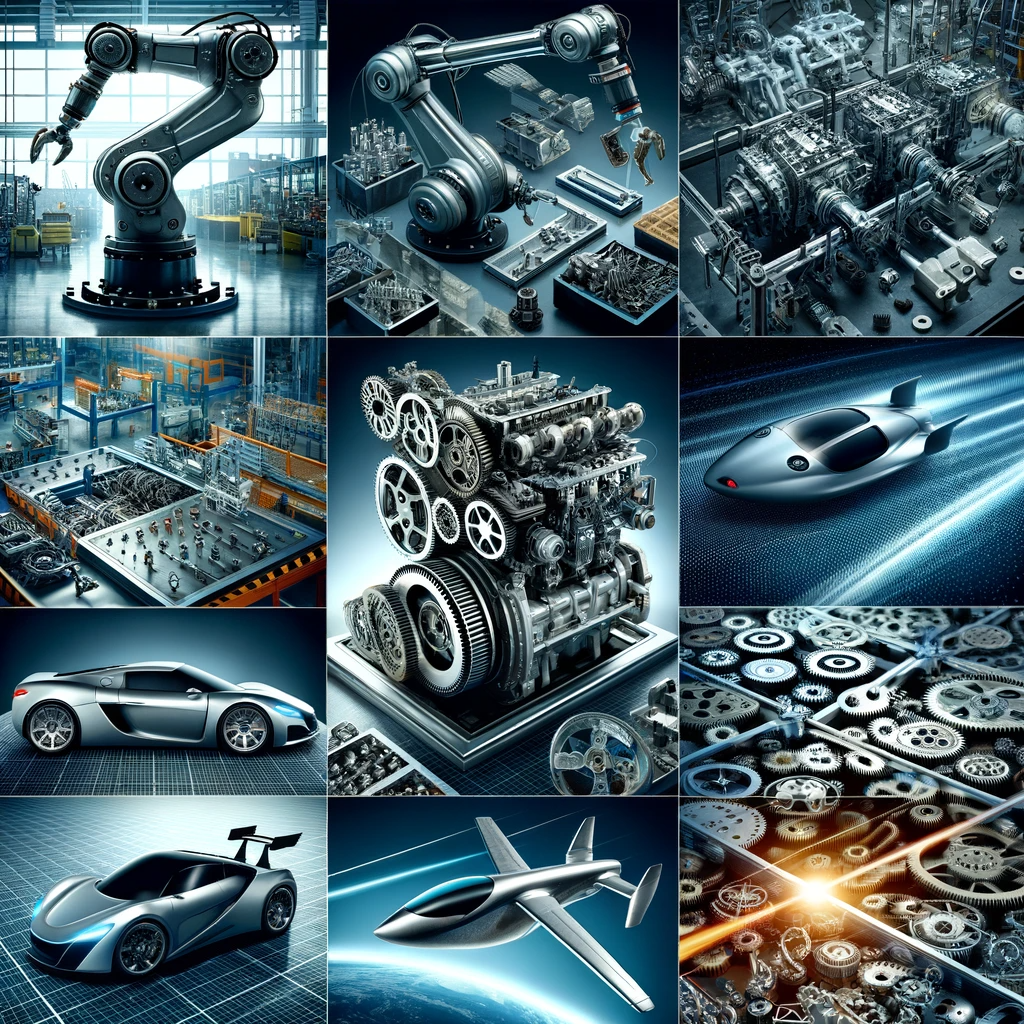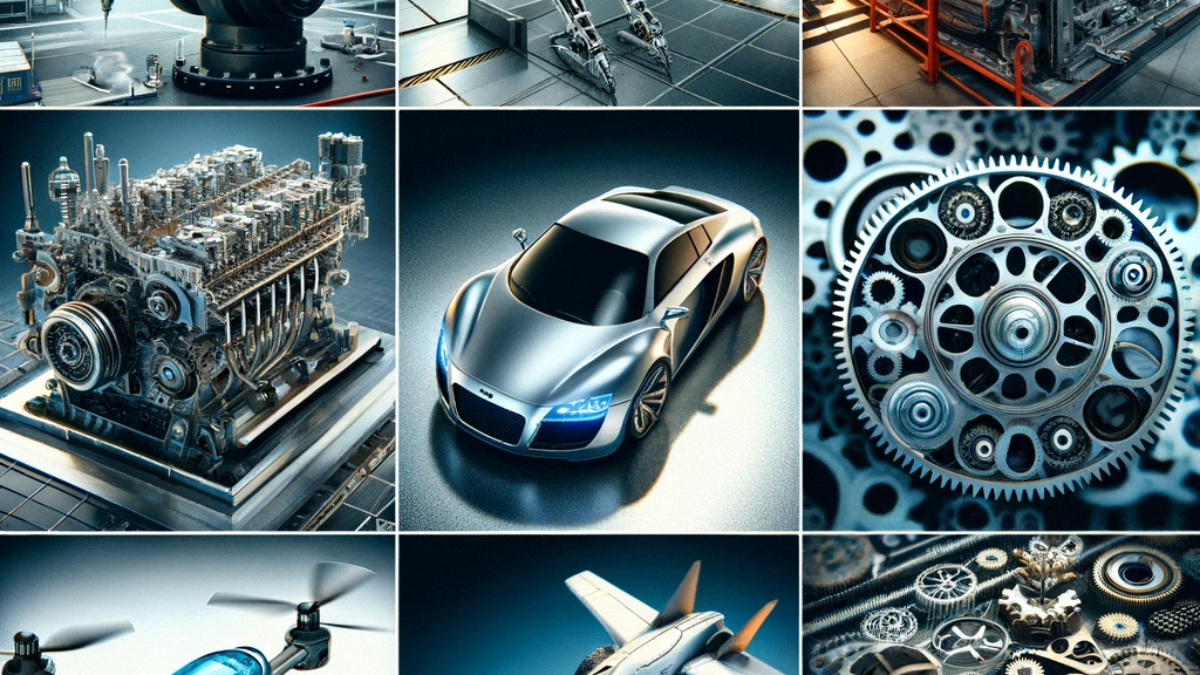Mechanical engineering, an ancient and highly adaptable field of engineering, mechanical engineering jobs prospects across diverse industries. This blog post explores the various opportunities, benefits, drawbacks, uses, restrictions, and future potential of mechanical engineering careers.
Oldest and Most Versatile Engineering Disciplines
- Historical Context: Mechanical engineering has roots dating back to ancient times, evolving from the need to design tools and machines.
- Versatility: It encompasses principles from physics and materials science and applies them to design, analyze, manufacture, and maintain mechanical systems.
Table of Contents
Career Opportunities in Various Sectors
- Broad Sectors: Mechanical engineers find opportunities in sectors like automotive, aerospace, robotics, energy, and more.
- Roles: They can work as design engineers, project managers, research specialists, or in roles focusing on maintenance and quality control.
Myriad Possibilities
- Specializations: Areas like biomechanics, fluid mechanics, thermodynamics, and materials science.
- Emerging Fields: Involvement in cutting-edge fields like nanotechnology, environmental sustainability, and smart materials.
Advantages of Mechanical Engineering Careers
- Diverse Opportunities: The broad scope allows engineers to work in various industries and roles.
- Innovative Environment: Constant technological advancements offer a dynamic and ever-evolving work setting.
- Career Growth: High potential for professional development and advancement in diverse areas.
Possibilities in Mechanical Engineering Jobs
1.Design Engineer
- Role: Design engineers create blueprints and plans for new mechanical systems. This could involve anything from small components like gears to large-scale industrial machinery.
- Skills Required: Creativity, strong grasp of engineering principles, proficiency in CAD (Computer-Aided Design) software.
- Impact: Their work is crucial in innovating and improving product designs, directly impacting functionality and efficiency.

2. Research and Development (R&D) Engineer
- Role: These engineers are at the forefront of technological advancements, working on developing new technologies or improving existing ones.
- Skills Required: Strong analytical skills, innovative thinking, proficiency in simulation and modeling tools.
- Impact: They drive progress in various fields, from sustainable energy solutions to advanced medical technologies.
3. Project Engineer
- Role: Project engineers oversee engineering projects, ensuring they are completed on time, within budget, and according to specifications.
- Skills Required: Leadership, project management, communication, and a broad understanding of engineering disciplines.
- Impact: They ensure the smooth execution of engineering projects, directly influencing their success.
4. Manufacturing Engineer
- Role: These engineers focus on improving and optimizing manufacturing processes. They work to increase efficiency, reduce costs, and improve product quality.
- Skills Required: Knowledge of manufacturing processes, problem-solving abilities, proficiency in process simulation software.
- Impact: Their work increases production efficiency and quality, impacting the overall profitability and sustainability of manufacturing operations.
5. HVAC Engineer
- Role: Specializing in heating, ventilation, and air conditioning systems, these engineers design and oversee the installation and maintenance of HVAC systems.
- Skills Required: Understanding of thermodynamics, fluid mechanics, and energy efficiency.
- Impact: Their expertise is vital in ensuring comfortable, safe, and energy-efficient indoor environments.
Advantages of Mechanical Engineering jobs
- Diversity of Industries: Opportunities in aerospace, automotive, energy, manufacturing, and more.
- Innovation and Creativity: Constantly evolving technologies ensure a dynamic work environment.
- High Demand: Mechanical engineers are always in demand due to their versatile skill set.
Disadvantages and Challenges
- High Responsibility: Engineers often handle critical projects, leading to high-stress situations.
- Continuous Learning: The need to stay updated with rapidly changing technologies.
- Safety Risks: Working in manufacturing or on-site projects can pose safety hazards.
Applications of Mechanical Engineering
- Renewable Energy: Developing sustainable energy solutions.
- Robotics and Automation: Enhancing efficiency in manufacturing and daily life.
- Biomedical Applications: Creating prosthetics and medical devices.
Limitations in the Field
- Resource Constraints: Projects can be limited by budget and material constraints.
- Regulatory Compliance: Adhering to strict industry standards and regulations.
- Environmental Impact: Balancing technological development with environmental preservation.
Future Scope
- Artificial Intelligence Integration: Incorporating AI for smarter mechanical systems.
- Sustainable Engineering: Focus on eco-friendly and energy-efficient designs.
- Space Exploration Technologies: Contributions to spacecraft and extraterrestrial research.

Add a Comment